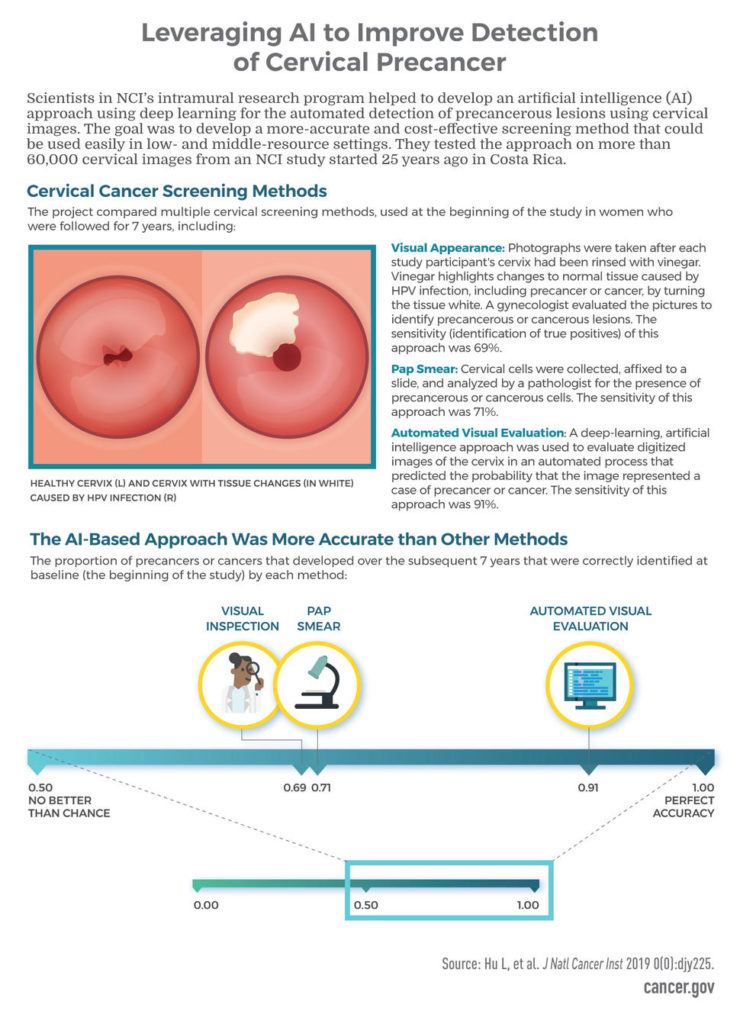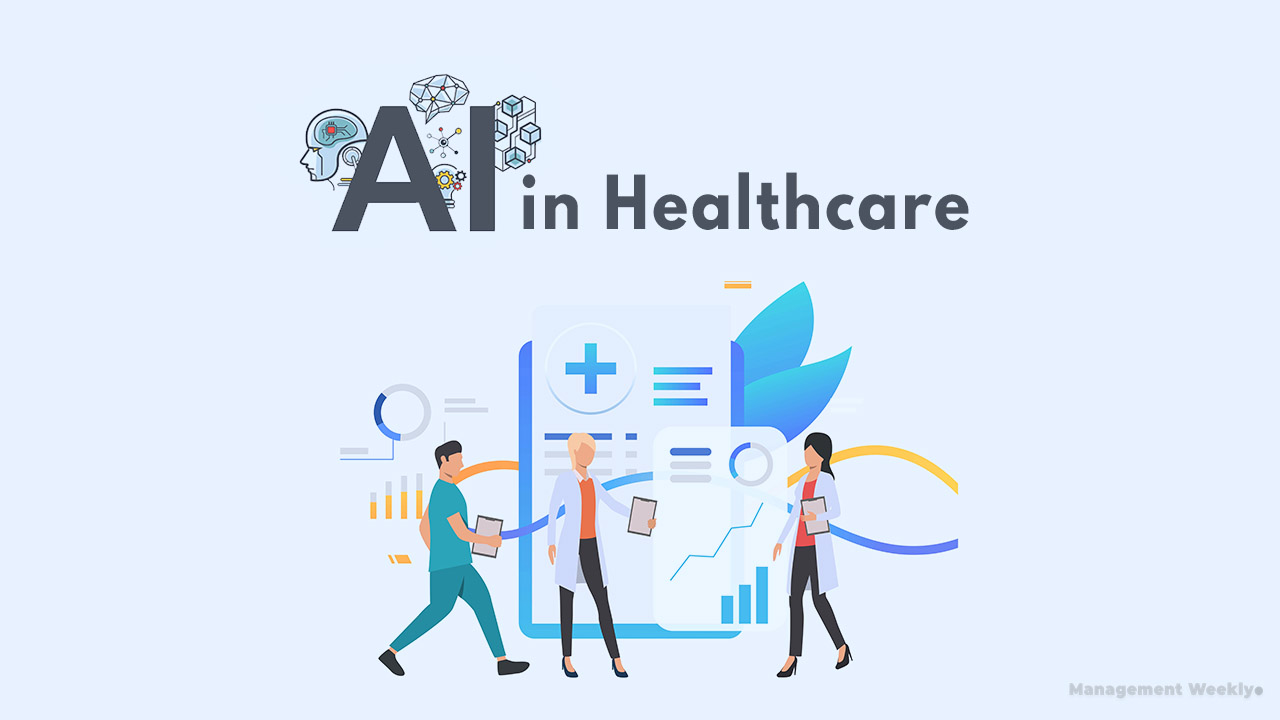Three of the biggest problems of healthcare are accessibility, consistency, and cost. We may solve all of these problems with Artificial Intelligence. We have seen a sea change in the way we diagnose diseases using machine learning-based technologies. A Canadian health watchdog BlueDot alerted about an upcoming virus almost a week before CDC and WHO declared the existence of the nCov19. They used AI to scour through social network data, online news, and media vine. Similarly, a study published in Nature posits the use of AI to detect covid19 from CT scans. Here are the expected contributions from AI in healthcare in 2021.
Diagnosis
It may sound like a Machine Learning buzzword, but deep learning does accelerate the diagnosis immensely. These algorithms recognize patterns. You feed them data from thousands or hundreds of thousands of reports. You also feed them the correct diagnosis for the reports. The algorithm then learns from these data points. Subsequently, the model is validated against a separate dataset. It is optimized for higher precision.
AI would help in the diagnosis of diseases in many different ways. Most notably, they are:
- Early identification
- Diagnosis of medical condition
- Offer the different course of action along with the risks and success rates for each
- Help in improving the reliability of randomly controlled trials
- Offer immense scalability
- Accessible diagnostic systems can work through APIs connecting different organizations
Covid19 Vaccine Development
Although, some vaccines like Pfizer’s BioNTech are already cleared for public use. However, it does not mean that our struggle with the research and development of the vaccine is over. Other companies are also developing alternative vaccines. Moreover, we may learn new things when we have more data from the usage of this virus. Once we have more data points, we can have a nuanced understanding of the side-effects and other impacts. It would be impossible to trace these without the use of AI in healthcare 2021 and 2022.
Covid19 Vaccine Distribution
One of the major healthcare challenges in 2021 will be the distribution and administration of Covid19 vaccines. We shall see the application of AI in the following areas:
- Identification of the high-risk individuals.
- Prioritization of individuals based on multiple factors like risk, need and right to access.
- Logistic and Supply chain management
- Demand forecasting and balancing
Healthcare research in major areas
While our major attention was fixated on the novel coronavirus entirely in 2020, we are still fighting the old evils such as Cancer and Cardiovascular Diseases. The fight has become even more important because of the co-morbidity with Covid19. Secondly, the breakthroughs in artificial intelligence technologies in 2020 will help us in informing our strategy for AI in healthcare in 2021.
AI in cancer research

The National Cancer Institute is one of the leading research centers in the world. They developed a deep learning methodology to diagnose cancer. Their findings will find use in cervical and prostate cancer screenings. This is a major breakthrough. Most importantly, early detection can help the treatment process. The model diagnoses the presence of precancerous tissues by analyzing images of lesions.
AI in cardiovascular disease
Cardiovascular conditions reduce the lifespan of an individual. However, the specific impact varies wildly from one individual to another. Research published in the ‘Radiology’ journal highlights that machine learning can be used to estimate the lifespan of such patients. The study used reports from MRI and blood tests to model the heart’s specific structure. This data was tracked for over eight years period. The model can predict the complications that the person may face in the future. Additionally, it can also predict the time span of the occurrences of events. This model was found to be 20% more accurate than manual diagnosis done by doctors.
Turbocharge the Healthcare Information Systems
We have seen massive digitization in healthcare. Digitization has helped improve operational efficiency. It has cut down the cost of healthcare. Improved filing and historical record keeping as well. AI is poised to take this to a new level.
- Electronic health record system
- Preventive healthcare system
- Integrated single database of patients
- Analytics from multiple data streams
AI-assisted treatment

The predictive capability of the models has already been used in diagnosis. In 2021 we may see that it is being used in more areas. We have already discussed the importance of electronic healthcare records and integrated health information database. Some hospitals are already using this data to generate health insights for patients. In the future, we shall see real-time monitoring as well.
One of the applications of AI would-be in-patient treatment. Firstly, it has the potential to be used in critical patient care. An area where there is a lot of variability in treatment. This also leads to lower reliability of healthcare. If we can leverage the power of big data, we can find patterns in treatment. This can improve the chances of survival of the patient.
Improve patient experience
We talk so much about developing a powerful winning strategy. However, running a successful business is more than the projections, the strategy, and the 4Ps of the marketing mix. It is about walking the talk. Moreover, it is most important to deliver a delightful customer experience at each touchpoint of the journey.
This is even more important in the case of healthcare. The expectation from a healthcare provider is to under the pain of the patients. Even today, most of the healthcare is driven by corrective healthcare and patients and it is a painful process for your customers. The job of healthcare to take care of that. Further, convert that pain into a less painful experience. AI would help in understanding the customer journey. Help organizations in getting a sense of this common goal between customers and hospitals. Organizations have already integrated CRM with healthcare. We shall see Customer Experience Management integration taking a strong hold in the best part of 2021.
Health related data is estimated to be around a yottabyte 10^24.
Improvement in staff wellbeing
Delivering quality healthcare is a tiring experience. At the end of the day, they hit the hay and return home exhausted. One of the most important areas to improve in healthcare is staff wellbeing. Firstly, we need to take some load off their shoulders using AI-assisted healthcare. This would reduce burnout.
- Alert the mental health professionals about patient’s conditions and suggest the possible course of action.
- Reduce the load of menial task like form filling and data entry
- Assess the stress levels and suggest breaks before burnouts occur.
Telemedicine
Telemedicine offers a remote assessment and monitoring facility for the patients. It is especially helpful in situations and places where it is difficult to get access to healthcare. The Novel Coronavirus pandemic has accelerated the adoption of telemedicine. About 43.5% of the Medicare health centers used telemedicine in 2020. We shall see this trend upwards for the next few years.
However, we still have some limitations when it comes to telemedicine. Firstly, it will take some more time to win the trust of the customers. Once people start trusting telemedicine, it’s adoption would increase. Secondly, another issue in remote medicine is that of data requirements. Many handsets were launched with 5g functionality in 2020. It will increase the available bandwidth required for some features like augmented and virtual reality. These features make telemedicine more realistic. 5G will be helpful in adding functionality like AR, VR to telemedicine. Therefore AI in healthcare 2021 may see an uptake of telemedicine.
